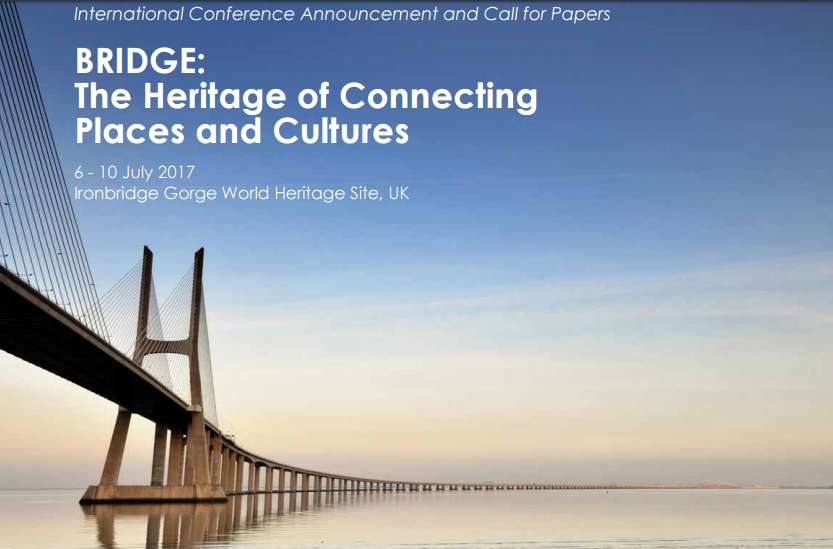
From a log crossing a stream to a road linking continents, the bridge is an embedded structure in our daily lives. Though its form and design has changed over the centuries its function remains one of connecting two points for a purpose; be it one of mere social convenience, economic necessity, for conquest or technological showmanship. Bridges (viaducts, overpasses, fly-overs) physically and symbolically connect places, communities and cultures; they remind us of division while at the same time providing the means for unification. Fought on and fought over, bridges are strategic markers in the landscape and in our own lives. Crossing over, or under a bridge carries a symbolism of passage and transition and in real terms marks a change in environment and perspective. In their history bridges have been built of a wide variety of materials, in all shapes and sizes, and are emblematic of technological advance. But they also reflect shifting socio-cultural preferences in art, architecture and design and quickly reflect and project the identities of the communities and places they bring together.
While of course bridges are still actively being constructed, the world is covered with a vast variety of bridges we have come to value as our heritage from the World Heritage Vizcaya Bridge near Bilbao to the covered wooden bridges of Vermont and New England in the USA, to the Sydney Harbour Bridge in Australia and the Pont d’Avignon in France. Built in a multitude of materials and styles, each bridge is laden with its own specific stories and meanings. From the Bridge of Sighs to the Bridge of Spies, bridges provide a dramatic setting for the fullest range of human endeavours and emotions. It is the role of bridges in the human imagination that adds significantly to their value as important and remarkable objects in the landscape.
This conference seeks to engage in an open multi-disciplinary analysis of the heritage of bridges –not only as physical structures connecting places and cultures but also as symbolic and metaphorical markers in the landscape. It seeks to explore the relationships that places, cultures and communities develop with bridges and to discuss how and why societies value bridges as an integral part of their heritages. It seeks to examine the variety of bridges we designate as heritage and the changes in their form and functionality over the years. In particular we wish to examine the full range of meanings we ascribe to the bridge in social and cultural life. The conference welcomes academics from the widest range of disciplines and wishes to act as a forum for exchange between the sciences, social sciences and the humanities. The conference will draw from anthropology, archaeology, art history, architecture, engineering, ethnology, heritage studies, history, geography, landscape studies, literature, linguistics, museum studies, sociology, tourism studies etc. The conference will take place at the World Heritage Site of Ironbridge Gorge – the birthplace of the industrial revolution and the home of the World’s first iron bridge.
Indicative themes of interest to the conference include: • The materials and technologies of bridges – the heritage of form and function • National and local iconographies of bridges • Narratives of bridge construction and destruction • Communities united and communities divided by bridges • Poetics of the bridge - representing the bridge in art, literature and film • Love and death on the bridge • The language of the bridge – metaphors and meanings in social life • Touring bridges – travel narratives and tourism economies • Alternative bridge crossings – tunnels and ferries
Abstracts of 300 words should be sent as soon as possible but no later than 27 February 2017 to www.universityofbirmingham.submittable.com. Email Ironbridge@contacts.bham.ac.uk for further details.
Disclaimer: Any views expressed by individuals and organisations are their own and do not in any way represent the views of The Heritage Portal.
